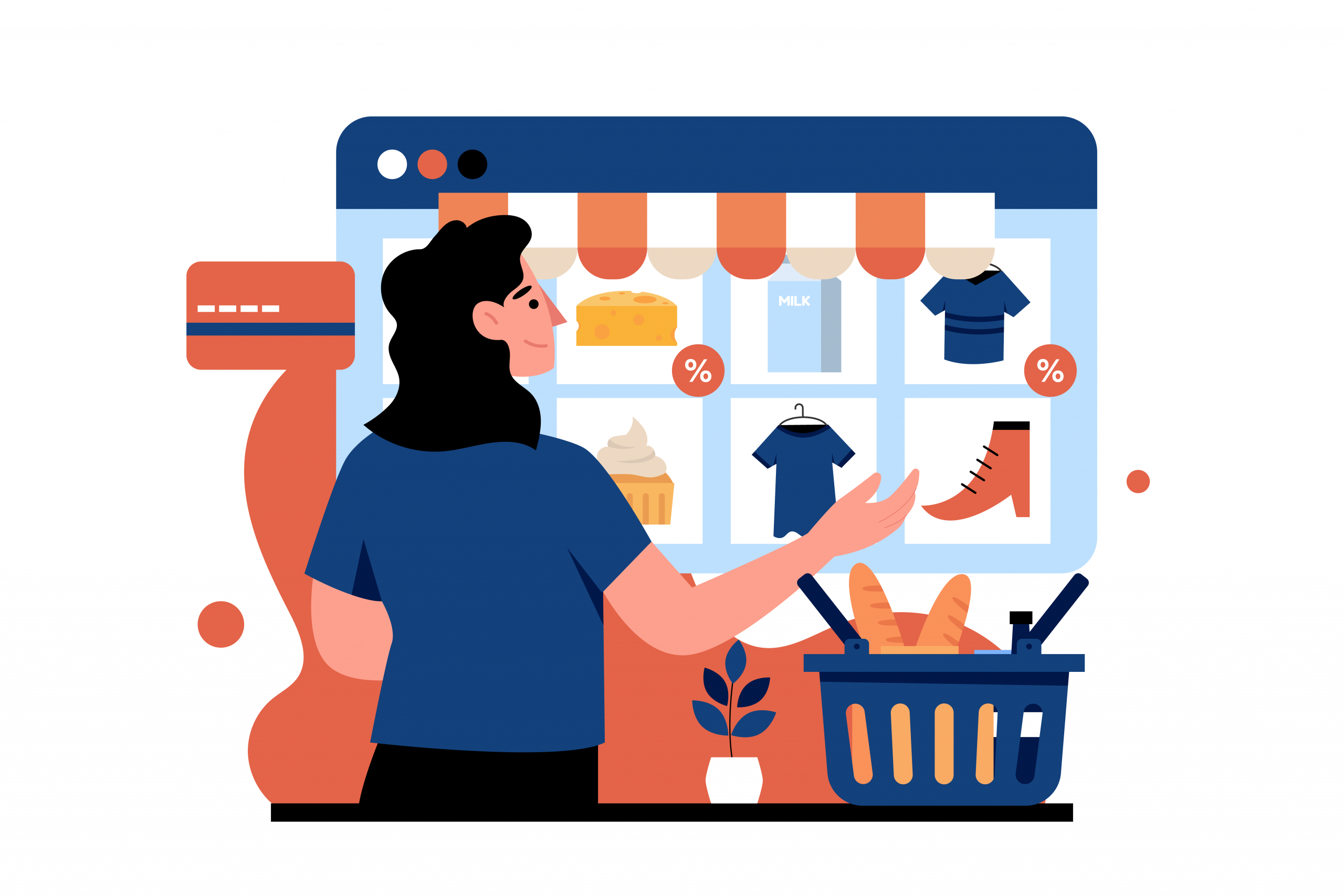Shopify Review — 10 Pros and Cons You Need to Know In 2023
In this review of Shopify, you’ll discover essential information for store owners and those who aim to start a shop. It’s about one of the most popular eCommerce platforms available and the pros and cons of Shopify.

Shopify has become an exceptional choice for building online stores, as it offers unparalleled flexibility that enables companies to sell various digital and physical products. Try it once — you’ll get all the financial benefits out of your e-commerce business.
When objectively assessing Shopify, it is a feature-rich, comprehensive, and powerful tool for modern store owners and persons intending to launch an online store.
Delve into this review to discover why Shopify is widely regarded as one of the top solutions on the market.
In this piece, we will utilize the knowledge and insights of the GetTrusted team to present an innovative method for discovering outsourcing companies. This approach solely revolves around selecting reliable vendors, ensuring financial security, and receiving unwavering assurances of exceptional work.
As a platform that facilitates connections between premier outsourcing providers and clients, we prioritize safety and guaranteed excellence, especially when it comes to identifying the top Shopify development companies. We are well-versed in the common pitfalls many face when venturing into outsourcing.
While GetTrusted takes care of the rigorous vetting process for your potential development partners and offers an escrow service to safeguard your budget, familiarising yourself with the range of services available is equally important.
What Is Shopify?
Shopify is an all-in-one eCommerce platform that enables individuals and businesses to set up and manage online stores. It provides a range of features and tools to
- Create a professional and customizable online storefront
- Manage product inventory
- Process payments
- Track orders, and
- Handle other aspects of running an eCommerce business.
A variety of customizable website templates and themes is one of the Shopify store pros.
The platform offers a user-friendly interface, making it accessible to beginners and experienced users.
It also provides a secure and reliable hosting infrastructure, ensuring that online stores are always available and can handle high traffic levels.
Shopify offers built-in payment processing options, allowing businesses to accept customer credit card payments. It also integrates with numerous third-party payment gateways for added flexibility.
The platform supports various sales channels, including social media and marketplaces, allowing businesses to reach customers beyond their online stores.
In addition to its core features, Shopify has an extensive app store where users can find and install additional applications to enhance their online store’s functionality. These apps cover many needs, such as marketing, customer support, and inventory management.
Shopify provides a comprehensive solution for individuals and businesses looking to establish and grow their online presence, offering the tools to manage and scale an eCommerce business effectively. All these services are easy to accomplish: GetTrusted will provide you with the top 3 companies in the niche. Yes, GetTrusted guarantees the finest product quality as the company evolves.
How Does Shopify Work?
Shopify is a cloud-based eCommerce platform that simplifies setting up and running an online store.
Here’s an overview of how Shopify works:
- Sign up and create an account: To get started, sign up for a Shopify account. You can choose a unique domain name for your store or use an existing one, which is an advantage of Shopify.
- Customize your store: Once you have your account, you can begin customizing your store’s appearance. Shopify offers a variety of professionally designed themes and templates that you can choose from and tailor to match your brand. You can modify the layout, colors, typography, and more to create a unique online store.
- Add products: With your store’s design in place, you can add products to your inventory. You can upload product images, set prices, add descriptions, and organize them into categories for easy navigation.
- Set up payments: Shopify provides built-in payment processing options, allowing you to accept customer credit card payments. You can also integrate with third-party payment gateways if desired. Shopify handles the security and encryption of customer data to ensure safe transactions.
- Configure shipping: You can set up shipping methods and rates based on your preferences and location. Shopify offers various shipping options, including carrier-calculated, flat, and free shipping. Also, there is an option to integrate with shipping carriers for real-time shipping rates and order tracking.
- Launch your store: Once you have customized your store, added products, and configured payment and shipping settings, you can launch your online store and make it publicly accessible to customers.
- Manage orders and inventory: As orders start coming in, Shopify provides a comprehensive dashboard to manage and fulfill them. Track order status, send notifications to customers, print shipping labels, and update inventory levels automatically.
- Expand your store’s functionality: Shopify offers an extensive app store where you can find additional applications and plugins to extend your store’s functionality. These apps cover various areas, such as marketing, analytics, customer support, and inventory management.
Throughout the process, Shopify handles the technical aspects of hosting and maintaining your online store, ensuring that it is secure, fast, and accessible to customers.
It also provides customer support and resources to assist you in running and growing your eCommerce business.
Shopify simplifies setting up and managing an online store, providing the necessary tools and infrastructure to run a successful eCommerce business.
Pros and Cons of Shopify
Shopify is a leading e-commerce platform that empowers businesses of all sizes to create and manage their online stores. With its user-friendly interface and wide range of features, Shopify has become popular among entrepreneurs and established brands.
However, like any other platform, Shopify comes with its own pros and cons that are important to consider before making a decision. We will explore the advantages and disadvantages of using Shopify to help you assess whether it fits your online business.
| Shopify Pros | Shopify Cons |
| Beginner-friendly and developer-friendly: Shopify is designed to be simple and easy for beginners while offering flexibility for developers to customize and extend their online stores. | A limited selection of free themes: Shopify offers fewer free themes compared to other eCommerce builders, which may limit the design options for those looking for cost-effective solutions. |
| Responsive and flexible templates: Shopify provides fully responsive templates that adapt to different screen sizes and devices. These templates offer flexibility for customization, allowing you to create a unique and visually appealing online store. | Limited ability to create product variants: The capability to create “product variants” on Shopify is somewhat restricted, potentially limiting the flexibility in presenting product options to customers. |
| Abandoned cart functionality: Recovering abandoned carts is available on all Shopify plans. This feature helps prevent lost sales by reminding customers to complete their purchases. | Reliance on third-party apps for enhanced functionality: To add specific features or functionalities to your store, you may need to install multiple third-party applications. This reliance on apps can increase costs and complexity. |
| Wide range of apps: Shopify offers a diverse selection of apps that cater to various needs, such as dropshipping, marketing, and more. These apps can enhance your store’s functionality and provide additional tools and features. | Customizing Shopify requires some knowledge: Customizing your Shopify store may require a certain level of technical expertise or familiarity with Shopify’s platform, making it less accessible for users without fluid knowledge. |
| Built-in email marketing and SEO capabilities: Shopify includes built-in email marketing features and SEO capabilities, making promoting your store easier and improving its visibility in search engine results. | Reporting and analytics limitations on cheaper plans: Shopify’s reporting and analytics options may be limited on lower-priced plans, potentially restricting the depth of insights and data available for store analysis. |
| Tax calculation tools: Shopify provides tools to assist with tax calculations, helping you keep track of your finances and ensuring accurate tax compliance. | Geographic restrictions on built-in payment processor: Shopify’s built-in payment processor, Shopify Payments, supports specific countries only. If your business operates in a country not supported by Shopify Payments, you must use third-party payment gateways. |
| Multi-currency sales support: Shopify supports selling in multiple currencies, allowing you to reach customers from different regions and offer localized pricing. | |
| Multilingual store capabilities: You can create versions of your store in various languages, making it more accessible to a global audience and improving the shopping experience for customers who prefer different languages. | |
| Shipping discounts through “Shopify Shipping Services”: Shopify offers shipping discounts through its integrated shipping services, helping you save on shipping costs and provide competitive rates to your customers. | |
| Diverse payment gateways: Shopify supports a wide range of payment gateways, giving you flexibility in choosing the payment methods that suit your business and customer preferences. |
Shopify: Useful Features
A prominent advantage of Shopify is that it eliminates the need for self-hosting or getting a domain name from a third party, as it provides all the tools you need to create a website in minutes.
It is a turnkey solution suitable for small start-up retailers and high-revenue-generating companies.
Recovery of Abandoned Carts
Up to approximately 70% of online carts have been abandoned. Shopify offers automatic email triggers and other options to help solve this problem. These features help you reconnect with shoppers who left the store without making a purchase.
Automatic Shipping Calculation
Shopify’s automatic shipping calculation makes shipping items worldwide easy. The system determines the exact cost of delivery in real time based on factors such as the weight of the goods and the location of the buyer.
Point of Sale (POS) Functionality
Shopify POS systems allow businesses to accept online and offline payments. This end-to-end feature provides seamless integration between physical and online sales channels. For more information, refer to our Shopify POS review.
Client Profiles
Customizable user profiles provide up-to-date information about your target audience. This tool effectively segments marketing and sales campaigns to reach specific customer groups.
Simplified Discount Codes
Shopify’s bulk discount feature made increasing sales and revenue easier. It allows you to create discount codes for various types, including free shipping, percentage discounts, and discounts with a fixed dollar amount.
Integration with Social Networks
Uses the “shop” feature on Facebook to replicate your Shopify eCommerce website, allowing subscribers to shop directly without visiting your main website. This integration empowers you and improves the shopping experience for your customers.
Shopify Service Fulfillment
By using Shopify’s dropshipping service, you can streamline labor-intensive aspects such as shipping, packaging, and handling by letting Shopify handle these tasks on your behalf.
Access to Experts
In addition to the above features, Shopify gives you access to experts who can help with design, development, marketing, and more. Their experience ensures that you maximize the potential of your online store.
Comprehensive Features
Shopify offers many features, including hundreds of professional themes, a robust blogging platform, the ability to purchase unique domain names and SSL certificates, support for 70 payment channels, and marketing and SEO assistance. These features contribute to the creation of a comprehensive e-commerce solution.
What Can You Sell on Shopify?
When selling on Shopify, the possibilities are vast and varied. Shopify supports many eCommerce businesses and allows you to handle various products, whether dropshipping or selling digital or physical goods.
On Shopify, you can sell an array of items, including but not limited to paintings, antiques, bags, cameras, earthenware and ceramics, stamps, t-shirts, wine, furniture, toys, books, auto parts, baby products, stationery, photo prints, and e-books. These are examples of common items showcasing the platform’s versatility.
It’s important to note that certain businesses are prohibited from using the Shopify platform. These include those involved in intellectual property infringement, regulated or illegal products and services such as
- Gambling
- Pharmaceuticals
- Investment and lending services
- Virtual currency, and
- Adult content and services
- Video games or virtual world credits
- Social media activities
- Multi-level marketing
- Financial pyramids, and
- Event tickets.
Selling Physical Products on Shopify
There are some more Shopify store pros. When it comes to selling physical products on Shopify, the process is straightforward. After setting up your store, you can add your stock products:
- Simply log into your Shopify account
- Go to the dashboard, click “Products,” and
- Select “Add Product.”
- The “Add Product” screen lets you input product details, including name, description, collections, vendors, and tags, helping you organize your products effectively.
For those interested in dropshipping, Shopify allows adding products through dropshipping apps. You can explore the Shopify Marketplace and choose a dropshipping app like Oberlo, which allows you to browse and add products directly from its interface.
The process is slightly different if you’re selling digital products on Shopify. When adding a product to your store, you can indicate that it is a digital product or service by unchecking the shipping box.
Selling Digital Products on Shopify
Shopify offers a free app called Digital Downloads, which enables you to sell downloadable digital products such as
- Digital art
- Videos
- Audio clips, or
- Non-fungible tokens (NFTs).
Customers who purchase a digital product receive a download link to access the file.
Shopify provides a versatile platform to sell a wide range of physical items, dropshipped products, or digital goods. The platform offers the necessary tools and apps to support different types of eCommerce businesses and streamline the selling process.
Shopify Payment Gateways
Regarding payment gateways, Shopify offers a range of options to cater to different business needs, which is one of the Shopify pros. By default, Shopify Payments and PayPal Express Checkout are the primary payment gateways integrated into the platform.
However, if these options don’t suit your requirements, Shopify can integrate with over 70 other payment gateways. It’s important to note that each gateway has its own set of transaction fees, so we recommend reviewing them before making a decision to ensure you are aware of the associated costs.
Shopify provides one of the most comprehensive lists of payment channels available, offering customers a wide range of options worldwide.
While you may not need to use all of them, this extensive selection allows you to choose the payment channels that best suit your organization’s needs.
It also allows you to experiment and determine which payment methods work best for your target audience and improve the customer checkout experience.
Shopify Payments and PayPal on Shopify
PayPal is one of the payment gateways supported by Shopify. It’s worth noting that PayPal has its own fees for credit card transactions.
On the other hand, if you choose to use Shopify Payments as your payment gateway, there are no additional transaction fees imposed by Shopify. If you prefer alternative options and wish to avoid Shopify Payments, platforms like 3dCart and BigCommerce are viable alternatives that do not charge transaction fees.
In addition to traditional payment methods, Shopify accommodates cryptocurrencies and other alternative currencies through payment gateways such as
- BitPay
- Dwolla
- Coinbase, and
- GoCoin.
Furthermore, Shopify supports payment methods like checks, money orders, and bank deposits, offering flexibility for businesses and customers with specific preferences.
Shopify Fees
Shopify provides diverse payment gateways for various business needs and customer preferences.
From the default options like Shopify Payments and PayPal Express Checkout to integration with numerous other gateways, businesses can choose the most suitable payment channels.
It’s crucial to consider some disadvantages of Shopify here (like the transaction fees associated with each gateway) and explore the available options to optimize your payment processing. Thus, you’ll provide a seamless checkout experience for your customers.
Partner with GetTrusted and Sell on Shopify: A Conclusion
Shopify remains a prominent and highly regarded platform for building online stores in 2023. The platform is a comprehensive market solution for e-commerce, particularly for both professionals and new to the online business world. While certain restrictions exist on the types of products that can be sold, as long as your offerings align with the platform’s guidelines, you should have no trouble meeting the requirements.
When cooperating with GetTrusted as a unique way to find a reliable partner to launch and/or maintain an online store on Shopify, you’ll witness
- Examined and proven top vendor(s)
- Checked final product quality
- Extensive selection of visually appealing themes, and
- The availability of numerous third-party integrations to enhance your business and elevate the customer experience.
Regardless of the scenario, GetTrusted can alleviate the burdensome process of finding a development partner. The objective is to engage in a detailed conversation about your project, generate a cost estimate within 48 hours, and establish connections with the three most suitable and verified vendors that align with your requirements. Additionally, GetTrusted offers reliable escrow services to guarantee a seamless collaboration experience.
Try GetTrusted to get a seamless and convenient experience, streamlining various aspects of running an e-commerce store.









